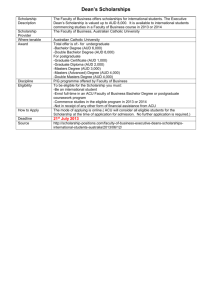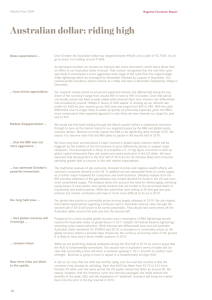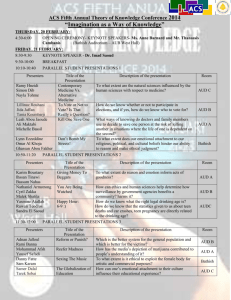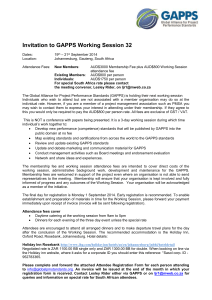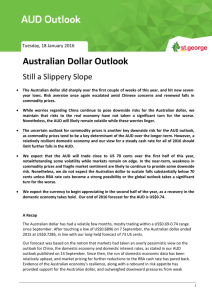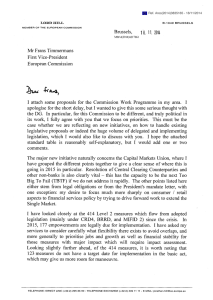here - The Norwegian Mission to the EU
advertisement
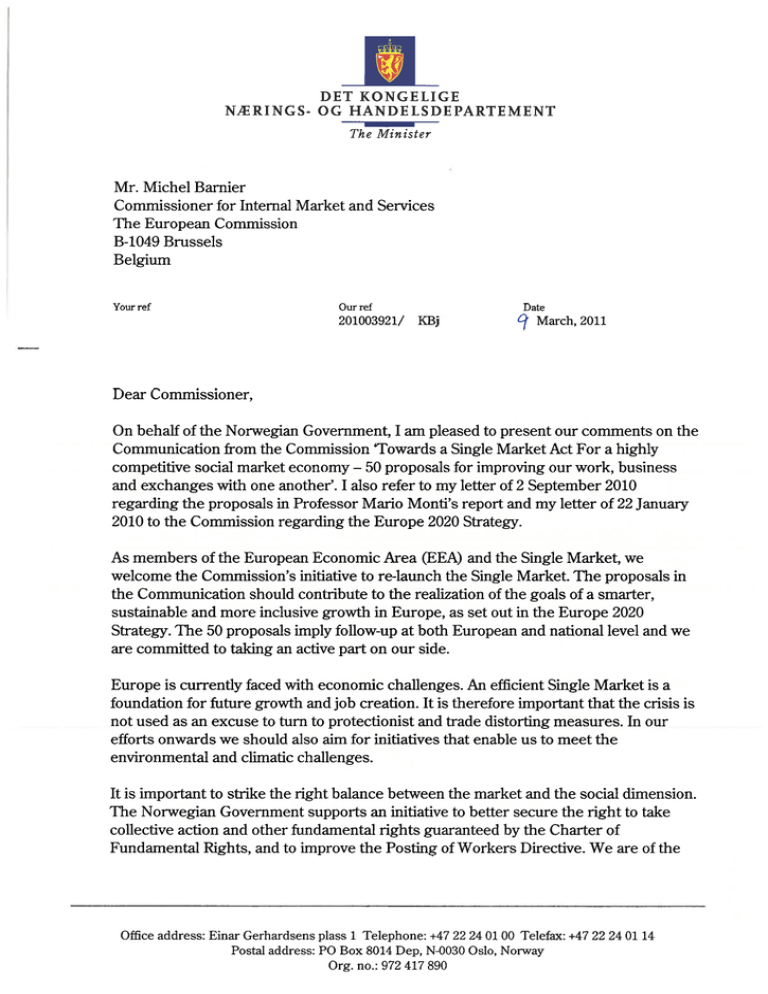
DET KONGELIGE NÆRINGS- OG HANDELSDEPARTEMENT The Minister Mr. Michel Barnier Commissioner for Internal Market and Services The European Commission B-1049 Brussels Belgium Your ref Our ref 201003921/ KBj Date 9 March, 2011 Dear Commissioner, On behalf of the Norwegian Government, I am pleased to present our comments on the Communication from the Commission ‘Towards a Single Market Act For a highly competitive social market economy —50 proposals for improving our work, business and exchanges with one another’. I also refer to my letter of 2 September 2010 regarding the proposals in Professor Mario Monti’s report and my letter of 22 January 2010 to the Commission regarding the Europe 2020 Strategy. As members of the European Economic Area (EEA) and the Single Market, we welcome the Commission’s initiative to re-launch the Single Market. The proposals in the Communication should contribute to the realization of the goals of a smarter, sustainable and more inclusive growth in Europe, as set out in the Europe 2020 Strategy. The 50 proposals imply follow-up at both European aud national level and we are committed to taking an active part on our side. Europe is currently faced with economic challenges. An efficient Single Market is a foundation for future growth and job creation. It is therefore important that the crisis is not used as an excuse to turn to protectionist aud trade distorting measures. In our efforts onwards we should also aim for initiatives that enable us to meet the environmental and climatic challenges. It is important to strike the right balance between the market aud the social dimensjon. The Norwegian Government supports an initiative to better secure the right to take collective action and other fundamental rights guaranteed by the Charter of Fundamental Rights, and to improve the Posting of Workers Directive. We are of the Office address: Einar Gerhardsens plass 1 Telephone: +47 22 24 01 00 Telefax: +47 22 24 0114 Postal address: P0 Box 8014 Dep, N-0030 Oslo, Norway Org. no.: 972 417 890 opinion that is should be made clear that the right to pursue and defend collective rights is not to be affected by the economic freedoms, and should not be regarded as a restriction in the sense of EU-law. The European institutions should, however, be prudent attempting to regulate this area in more detail, having due regard to Articie 153 TFEU. A single market that contributes to fuffilling social and environmental objectives and supports the transition to a low-carbon and resource efficient economy is important for creating sustainable paths to jobs and to increased welfare. As a general comment we support the aims and proposals in the Single Market Act. In the finalisation of the Single Market Act, and the subsequent follow-up, we find the following to be particularly important: 1. Better implementation and enforcement of Single Market legislation. Much of the Single Market legislation is already in place. However, the potential of the Single Market may be unleashed to a larger extent through better implementation and enforcement across the EEA. The Single Market is attractive and creates wealth when economic operators, consumers and citizens are faced with the same framework conditions everywhere. At the same time, it is important to simplify and ensure Smart Regulation in order to reduce unnecessary burdens, especially for small and medium sized enterprises. Enforcement is another key-word in this context. We support the European Union in promoting regulatory convergence and the use of international standards as a tool for global market access. We welcome the upcoming legislative reform of the European Standardisation System, and support improving this successful system. Small and medium-sized enterprises are the backbone of the European business community. Thus, improved access to capital markets and a cioser follow-up of the Small Business Act are important proposals. Simplification of public procurement legislation with the aim of ensuring a true European market for public procurement and some flexibility to use public procure ment in support of other policies are important steps forward. It is vital to strike a balance between Single Market legislation and international instruments aimed at ensuring important social considerations. Public procurement may also be used as a tool to promote workers’ protection. The proposal to consider a scheme for the Ecological Footprint of Products is positive. However, the impact of such a scheme must be thoroughly assessed. Page 2 2. Promoting awareness and confidence in the Single Market Many businesses and citizens are not fully aware of the benefits of the Single Market and consequently do not exploit the opportunities it provides. There is need for continuous information about the rights and opportunities that the Single Market has to offer. Furthermore, it is necessary to ensure that entrepreneurs and consumers know that the risk involved in cross-border activities and trade is low. They should be informed of the Single Market assistance services at their disposal. Easy access to information about the Single Market and existing assistance services is a core element in building corffidence. The promotion of a one-stop-shop by developing the ‘Your Europe’ portal is an important step in the relaunch of the Single Market. The problem is not lack of information, but rather lack of a structured gateway to relevant information and guidance sources. We therefore support the emphasis on further development of the’ Your Europe’ portal. Constructive dialogue with civil society in the preparation of texts and proposals is important in order to create awareness and trust in the Single Market. We consider the social dialogue to be of major importance in this regard. Enhancing the social dimensjon of the Single Market could also encourage support for the Single Market. If consumers are to trust products circulating in the Single Market, we need a strengthened system of market surveillance that functions well in all EEA States. Consequently, we support the emphasis given to co-ordinated market surveillance activities. A number of actions are foreseen in order to secure a single market for consumers. We find the proposed actions interesting and constructive. However, also other challenges for consumers, afflicting as well the single market, could have been highlighted. One example is the topic ofADRs alternative dispute solution. The experience of the ECC net (the network of European Consumer Centres) is that there are too many gaps as concerns appropriate complaint bodies in Member States. Ciosely related to this are the challenges for cross-border enforcement of public consumer rights in the field of consumer protection, where a proper functioning is vital for consumer trust. — 3. Creating a Digital Single Market The digital economy is developing rapidly. However, we need to remove barriers in the Single Market in order to take full advantage of the digital era. Electronic commerce is an opportunity to promote cross-border trade and co-operation in the EEA, and a way to unleash the potential for growth. A true digital Single Market is possible only if we increase trust and confidence as well as knowledge, among consumers and businesses, and especially SMEs. Cross-border Page 3 systems for mutual recognition of e-identffication and e-authentication are crucial elements, needed for both the public and the private sector. The proposal to link company registers is highly welcome, and should be seen in this electronic commerce context. 4. Better Governance of the Single Market A Single Market consisting of 30 countries with different cultures, administrative structures and languages implies some challenges. Shared responsibility aud close administrative co-operation are essential for good governance of the Single Market. Further development of systems for problem-solving aud information exchange are core elements. Without a network of co-operating authorities the Single Market will not be perceived as one coherent aud trustworthy market. Thus, we are positive to the further development of SOLVIT and other alternative dispute-resolution mechanisms in the Single Market, in order to reduce misunderstandings aud to minimize incorrect implementation of EU legislation. We support the proposal to launch a consultation with the social partners in order to create a European framework for the advance planning of industrial restructuring. In 2008 Norway introduced a regulation, the main purpose of which is to reduce the negative consequences of industrial restructuring on employees aud local communities, as well as maintaining companies’ possibilities for restructuring. The Restructuring Act introduced an obligation to report to the authorities before ciosing a plant with more than 30 employees. Citizens’ access to employment aud lifelong learning is of key importance in meeting future challenges. We support the introduction of cards aud schemes that promote mobility and employability among citizens in the Single Market. To avoid confusion, such systems must be simple aud unbureaucratic aud should not duplicate each other. It is also necessary to modernise the system of recognition of professional qualifications. Some challenges will remain for citizens, consumers aud economic operators. Administrative co-operation, information exchange aud problem solving are important elements necessary to overcome these challenges. Creating a better functioning and more efficient Single Market by 2012 is an important task. We need an ambitious aud well focused Single Market Act. Actions that support the Europe 2020 goals aud have concrete impact on growth aud jobs should be given priority. Page 4 The EFTA-EEA States intend to follow up this work, in ciose co-operation with the EU institutions and the Member States. We would be grateful if our partnership could be reflected in the final Single Market Act. I am looking forward to future co-operation on how to improve the Single Market. Yours sincerely, Trond Giske Page 5
